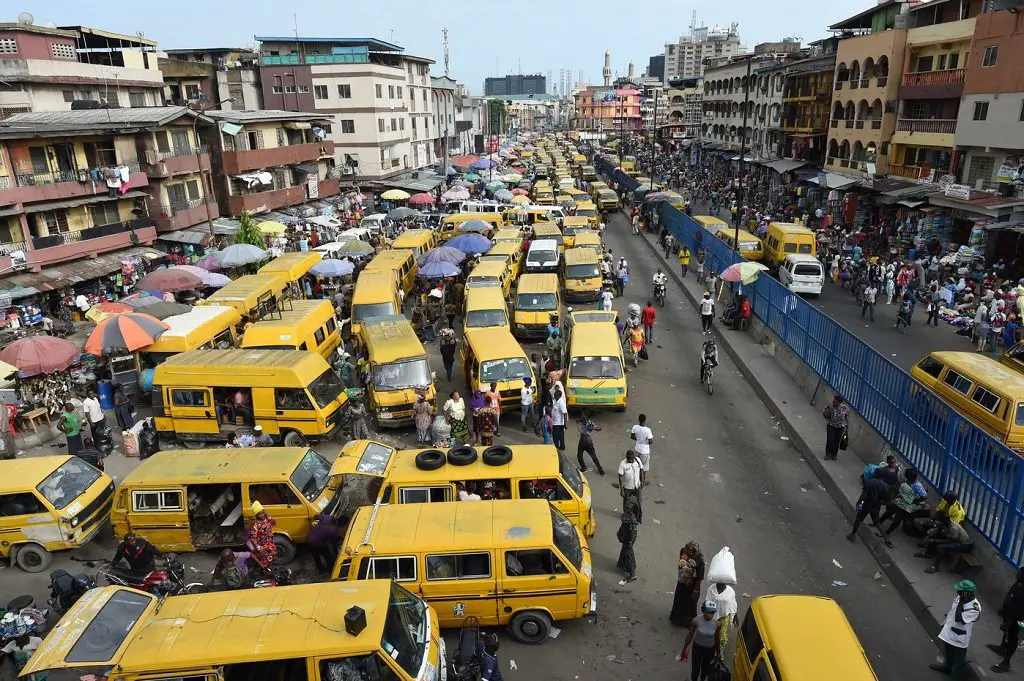The Nigerian tech sector is vibrant and experiencing growth where large firms are delivering agriculture, healthcare and financial services.
In this setting, smaller firms are providing e-commerce platforms and retail-related services.
Many firms in Nigeria start small but grow quickly, more than doubling their size in the few years since the start of operations, according to the Center for Global Development (SGD) and ONE campaign.
A 2018 survey shows that many tech firms are addressing inefficiencies in supply chains but the business environment is hampering advancement in the sector.
Erratic electricity supply and lack of credit are the worst culprits stymying the sector’s growth.
SGD and ONE say that most companies suffer significant power outages, forcing them to purchase generators.
On the financial front, few firms can access credit from financial institutions or venture capitalists with many forced to rely on family and professional networks.
Google Developers Space in Lagos
The report notes that the Nigerian government needs to do more and prioritise the tech sector by improving the basics of the business environment.
While these challenges remain, Google has launched its first Google Developers Space in Lagos, Nigeria.
Previously referred to as the Google Launchpad Space, the Google Developers Space is a hub for African developers, entrepreneurs and startups.
Google CEO Sundar Pichai, made a commitment to African entrepreneurs In July 2017, to start the Launchpad Accelerator Africa programme and launch a space to house these efforts in Nigeria. Google therefore launched the Google Developers Space in Lagos to provide that home, and a space where entrepreneurs, developers, VCs and investors can connect and collaborate with each other.
“Google is strengthening its commitment to supporting the entrepreneurial ecosystem in Africa by opening the Google Developers Space today. We have partnered with Impact Hub to bring the Space to life and worked with a local company called Space finish, which designed it specifically to create an environment that fosters collaboration and innovation. We’re looking forward to working with startups and other players in the ecosystem from across the continent at the Space,” said the Launchpad Accelerator Africa head of Operations, Onajite Emerhor.
Google does not charge for use of the space, which in addition to housing Google Launchpad Accelerator Africa will support developer meetups, training, experts office hours, Women in tech events, startup programmes (outside of Launchpad), partner events that support the wider entrepreneur and developer ecosystem, as well as Google initiatives for empowering people through digital skills training.
Launchpad Accelerator Africa has worked with 47 startups since the first class kicked off in early 2018.
These companies have raised millions of dollars in investments and created over nine hundred jobs across the continent. Launchpad Africa has accelerated startups from 17 African countries so far: Kenya, Algeria, Botswana, Cameroon, Côte D’Ivoire, Egypt, Ethiopia, Ghana, Morocco, Nigeria, Rwanda, Senegal, South Africa, Tanzania, Tunisia, Uganda, and Zimbabwe.
The next class will kick off at the Google Developer Space in May this year.
“This space is the next step to our support for developers across the continent. From our commitment to train 100 000 developers across Africa and the launch of developer merchant support in the Google Play store, making it possible for developers to earn money through apps they build. We are excited to continue our journey with the African startup and developer communities,” said Juliet Ehimuan, Country Director, Google Nigeria.
Through Google Developer Groups and Women Techmakers, Google provides training aligned with real-life job competency requirements.
There are 173 active Google Developer Groups (GDGs) in Africa, providing an opportunity for developers to meet other developers with similar interests at GDG meetup events, which include talks on a wide range of technical topics and hands-on workshops. GDGs also host DevFests – community-led developer events focused on community building and learning about Google’s technologies. Last year, more than 100 DevFest events were held across Africa.
“Africa’s startup ecosystem is growing, and this space is our way of supporting and being a part of that growth. We’re looking forward to working with startups and other players in the ecosystem from across the continent at the Space,” said Emerhor.
Power outages in Nigeria
The SGD and ONE report note that Nigeria’s power sector does not provide an adequate amount of electricity for the country’s sectors. This is despite the fact that Nigeria is Africa’s largest oil producer and holds large reserves of coal and gas.
“Nigeria’s current installed capacity is reported to be 12,500 megawatts, but in practice, it is only 3,200 megawatts. There are daily power outages in Lagos; most businesses consequently rely on diesel generators. For example, MTN, one of the largest mobile network operators in Africa, spends about 70 per cent of its operating expenditures in the country on generator fuel, with average monthly consumption in excess of 10 million litres.”
The report adds that Nigeria spends four times more money subsidizing fuel than building new schools and health centres and equipping new science labs.
“It is therefore not surprising that access to electricity is one of the most serious constraints facing tech firms in Nigeria; tech firms suffer even more than other firms. Of the surveyed firms, 57 per cent say that lack of electricity is a major obstacle,” adds the report.
In the report, tech firms reported experiencing power outages almost 30 times in a month where each outage lasted about three hours on average. The power outages have, however, decreased slightly since the deregulation of the power sector and the emergence of independent power providers in 2012, but by no means has the problem been solved.
